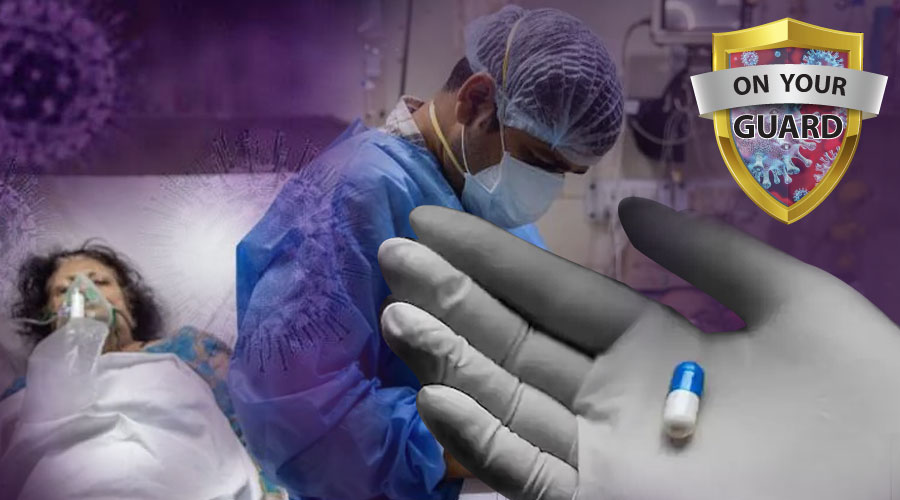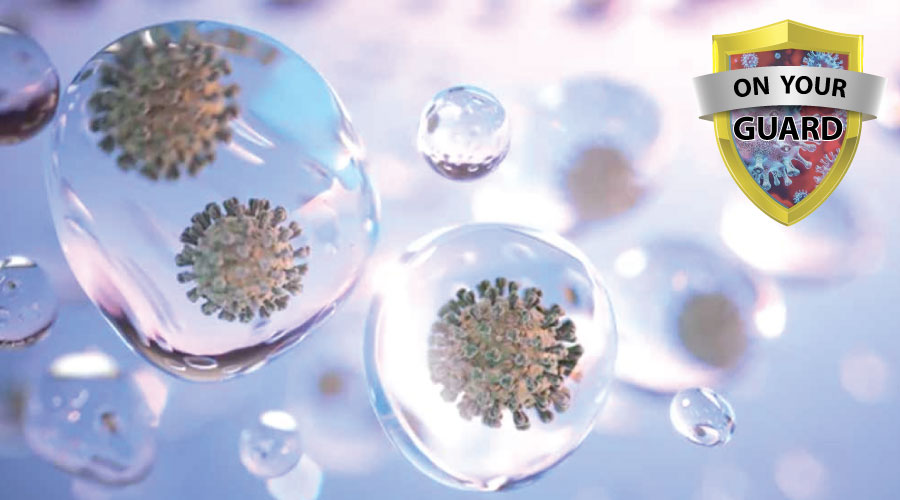The defence ministry says its Covid-19 drug, 2-DG, will be of “immense benefit” to patients. The drug was developed by the defence ministry in collaboration with Dr Reddy’s Laboratories for use in moderately-to-seriously-ill Covid-19 patients. If it does what clinical trials suggest, patients could come off supplemental oxygen faster and their recovery time may be quicker. Another piece of good news is that the drug, which comes in a soluble oral powder, is made from a generic molecule similar to glucose and can be mass-produced relatively cheaply. The sachets are expected to sell in the Rs 500-to-Rs 600 range.
The medicine, 2-DG (short for 2-deoxy-D-glucose), has just been cleared by India’s drug regulator for Covid-19 use and it’s described as an adjunct therapy -- meaning it should be used on patients in conjunction with other therapies. It works by accumulating in virus-infected cells in the body and preventing the virus from replicating. The defence ministry says 2-DG will be of “immense benefit” to Covid-19 patients.
Researchers in different countries were already studying 2-DG as a potential cancer treatment as it can kill cancer cells by blocking the supply of vital glucose molecules to them. Then, in April of last year, the Defence Research and Development Organisation found in experiments that DG-2 appeared also to stop the spread of the SARS-CoV-2 virus inside the body’s cells. It decided to conduct further studies, resulting in the repurposing of the molecule for Covid-19 treatment.
Phase-III clinical trials, involving 220 patients across India, indicated that 2-DG helped speed up the recovery of hospitalised patients and reduced the length of their dependence on supplemental oxygen.
A “significantly higher proportion” of patients of all ages given the drug improved symptomatically and became free from supplemental oxygen dependence by the third day, the study found. Under standard treatment, just 31 per cent of patients come off oxygen support by the third day. But using 2-DG, 42 per cent of patients came off oxygen support by Day 3. And it took a “significantly favourable” two-and-a-half median days less for 2-DG Covid patients’ symptoms to normalise compared with those receiving “standard of care treatment.”
2-DG spreads like glucose through the body and occupies the virus-infected cells. It prevents virus growth by stopping viral synthesis and destroys the protein's energy production. The drug also works on virus infections that have spread into the lungs, thereby helping to decrease patients’ supplemental oxygen reliance. 2-DG is expected “to save precious lives and reduce hospital stays,” says the defence ministry.
PS: The contents of this column (source: defence ministry, WHO, CDC) is intended as general information. For specific concerns, especially those with comorbidities, it is advisable to consult your family physician.












